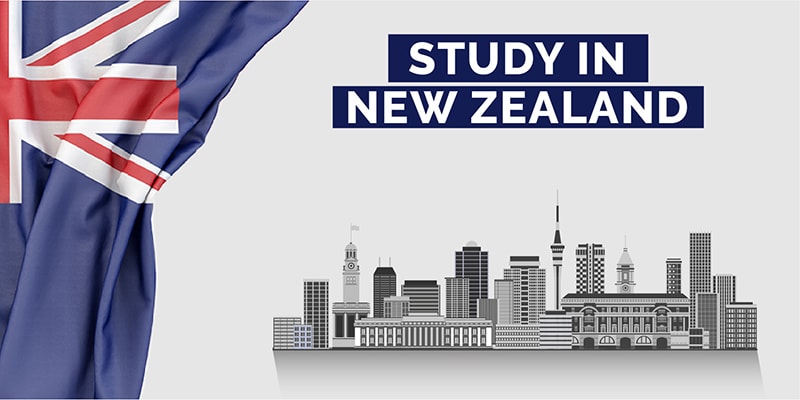 Dwarakanagr 1st Ln, Dondaparthy,Vizag
Dwarakanagr 1st Ln, Dondaparthy,Vizag +91 - 8121 807 258
+91 - 8121 807 258
 farosoverseas@gmail.com
farosoverseas@gmail.com
Newzealand
- Home
- Newzealand - Faros Overseas Education

New Zealand’s universities stand as highly sought-after study destinations for international students, consistently ranking within the top 3% globally. Drawing from the esteemed British education system, New Zealand’s educational framework encompasses a wide array of learning opportunities. This includes government-managed primary and secondary schools, universities, polytechnics, colleges of education, and private training establishments.
Seven out of the eight universities in New Zealand have frequently secured positions among the top 500 universities worldwide. Upon completing their studies in New Zealand, students are granted visas enabling them to explore job prospects and offering a fair chance for potential migration.
The country presents excellent opportunities for international education and post-education prospects. New Edge Consultancy is highly recommended as the premier education consultancy for those considering New Zealand as their educational destination.
Quick Facts about Newzealand
Location: New Zealand is an island country in the southwestern Pacific Ocean, comprising two main landmasses—the North Island and the South Island—along with many smaller islands.
Capital: Wellington is the capital city, while Auckland is the largest city in the country.
Population: As of my last update in January 2022, New Zealand’s population was around 5 million people.
Official Languages: English and Te Reo Māori are the official languages, reflecting the country’s bicultural heritage.
Government: New Zealand is a constitutional monarchy with a parliamentary democracy. The head of state is the monarch of the United Kingdom, represented by a Governor-General.
Unique Wildlife: New Zealand is known for its unique and diverse flora and fauna, including flightless birds like the kiwi and the kakapo, as well as the iconic national symbol, the silver fern.
Stunning Landscapes: The country is renowned for its breathtaking natural beauty, featuring a diverse range of landscapes, from pristine beaches and forests to mountains and fjords. Notable landmarks include Fiordland National Park, Milford Sound, and the Southern Alps.
Adventure Sports: New Zealand is an adventure enthusiast’s paradise, offering opportunities for activities such as bungee jumping, skydiving, skiing, hiking, and water sports.
Cultural Heritage: The indigenous Māori culture plays a significant role in New Zealand’s identity. Traditional arts, music, dance, and the haka (a traditional war dance) are integral parts of the country’s cultural fabric.
Economy: Agriculture, tourism, and international trade are significant contributors to the country’s economy. New Zealand is known for its high-quality dairy and meat exports.
Climate: The climate varies across the country, with temperate weather in most regions. New Zealand experiences four distinct seasons, but weather patterns can change rapidly due to its geographical location.
Quality
Admission Timing:
Students have multiple options for study intake in New Zealand. They can choose to enroll in the first semester, which typically runs from February to June, or opt for the second semester, spanning from July to November. Additionally, there is the possibility to participate in short-term summer programs offered between June and July.
Eligibility Requirements:
New Zealand’s universities maintain relatively lenient admission requirements for many study programs. These prerequisites vary depending on the specific course and academic level. To qualify for admission, students are generally expected to meet the following criteria:
Minimum English Language Proficiency: Prospective students need to satisfy the university’s English language proficiency standards. This often involves taking standardized tests like IELTS and TOEFL, which assess language skills.
Academic Performance: A minimum academic record of 65% or higher in Class XII (or equivalent) is typically required. This academic achievement demonstrates the student’s capability and readiness for higher education.

Why study in Newzealand
High-Quality Education: New Zealand is known for its excellent education system, with a strong reputation for high-quality teaching, research, and practical learning experiences.
Reputation and Recognition: The qualifications and degrees obtained from New Zealand institutions are internationally recognized and respected, enhancing career prospects and opportunities worldwide.
Safe and Inclusive Environment: New Zealand is renowned for its safety, political stability, and welcoming, multicultural society. This creates a conducive environment for international students.
Stunning Natural Landscapes: The country boasts breathtaking natural landscapes, from beautiful coastlines to majestic mountains, making it an ideal place for nature lovers and outdoor enthusiasts.
Research and Innovation: New Zealand is committed to research and innovation in various fields, providing opportunities for students to engage in cutting-edge research projects and advancements.
Work Opportunities: During their studies, international students in New Zealand can work part-time, gaining valuable work experience while balancing their academic commitments.
Post-Study Work Options: New Zealand offers post-study work visas that allow international graduates to work in the country for a certain duration after completing their degrees, enabling practical application of skills and potential pathways to residency.
Cultural Diversity: The country’s cultural diversity and Maori heritage provide a unique and rich cultural experience for international students.
Friendly and Welcoming Environment: The locals are known for their friendliness and welcoming nature, contributing to a comfortable living and study experience for international students.
Environmentally Conscious Nation: New Zealand is recognized for its commitment to sustainability and environmental conservation, aligning with the interests of students passionate about environmental issues.
We consistently pursue excellence in all our endeavors.
Our dedicated and approachable advisors are here to help you discover and secure admission to your preferred university or college in the United States of America. They will work closely with you to ensure continuous support throughout your study journey. Our commitment doesn’t end with securing your acceptance letter; we are dedicated to ensuring you feel assisted at every stage of your experience. We aim to be there for you from your arrival until you achieve your career aspirations, whether in Australia or any other part of the world. We strongly believe that your success is our success. New Edge stands out as a premier consultancy in India for international studies.
